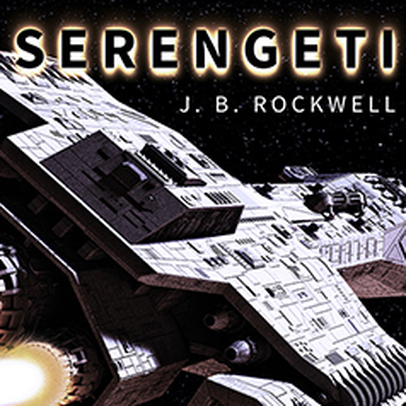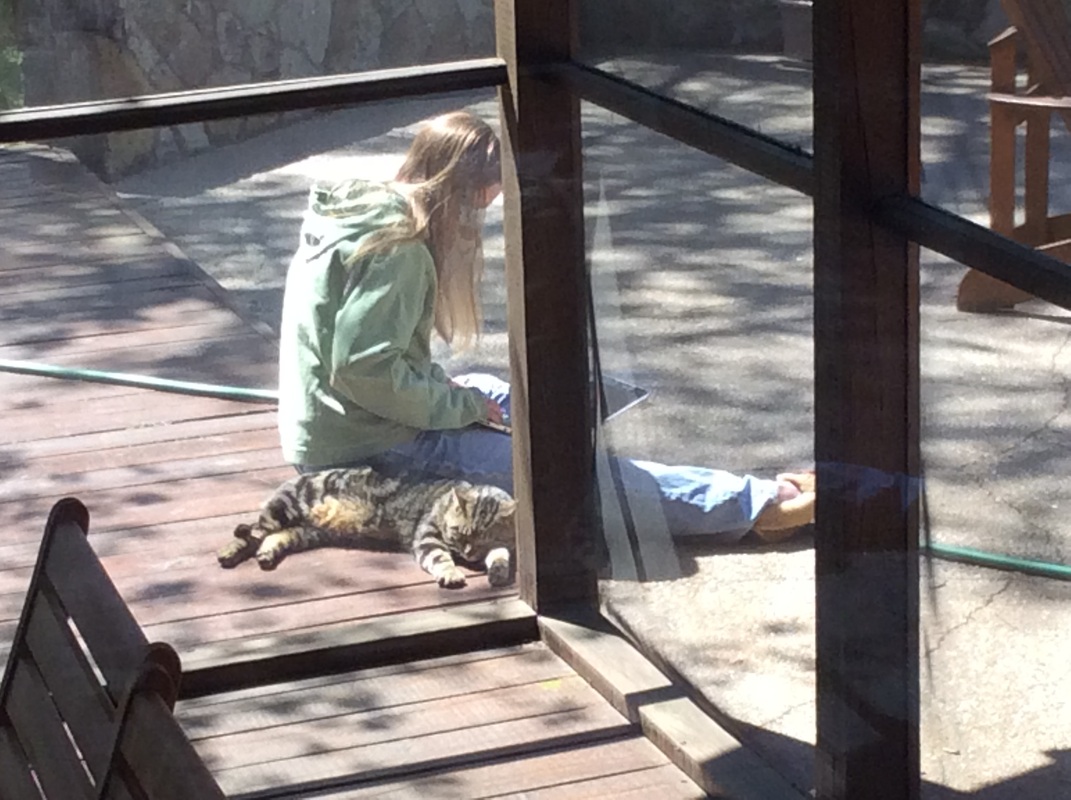|
I've been talking about this for a while, but it's finally almost here. Next week the audiobook edition of Serengeti releases and I couldn't be more excited. Especially since it comes with a spiff new alternate cover! Check it out and let me know what you think. Voice narration comes courtesy of AudioFile Earphones Award winner Elizabeth Wiley--a seasoned actor, dialect coach, theater professor, and dedicated narrator. She's amazing. Honestly. Hope you love it as much as I do.
0 Comments
I'm an author and (unsurprisingly) I know a lot of other authors. So, I got to thinking: why not interview a few of them so you guys can get to know them too? Brilliant, right? Yeah. That's me. My plan is to post a new interview every 1-2 weeks (hopefully I'll stick to it). To kick things off, I reached out to fellow SFF author Jesse Baruffi who kindly agreed to stop by and share a few tidbits about himself and his novel Otto von Trapezoid and the Empress of Thieves. So, without further ado, heeeeerrreeessss Jesse! One thing every writer deals with is criticism. Constructive criticism can be hugely beneficial. Beta readers are invaluable in the polishing and editing process as they find plot holes and repetition and all sorts of other issues in your manuscript that a writer—having edited and re-edited and re-re-edited their manuscript endless times—can be forgiven for having missed. And when you finally get your shiny new baby out there—published and available for hungry readers to spend their hard earned cash on—you know you’ll get more criticism. Heck everyone’s a critic, and while some may love your novel and shout its merits from the rooftops, some readers just won’t like it. And not even because there’s anything wrong with it. It just may not be what they expected. Or they may not connect with the characters. Or a thousand other things. All that constructive criticism is to be expected and any writer who gets into this business expecting anything else is setting themselves up for heartache. But there’s another hard truth you learn as a writer, and that’s that not all criticism is constructive. Or even helpful. In fact, some criticism can come across as flat-out mean, even if the reviewer didn't intend it to be. Let me give you an example to illustrate what I mean. Serengeti came out in early February 2016 and has received overwhelmingly positive reviews—thank you readers! Yes, there was a minor kluge with the published version, but my publisher (Severed Press) hopped right on it and fixed that right up. When I dissected the constructive criticism, I found most of the ‘dissenters’ didn’t like my portrayal of the robots, or how human I made the AI. Perfectly valid opinions—that falls into that ‘I didn’t connect with the characters’ critique I mentioned earlier—and while disappointing, didn’t really bother me. In fact, of the 50 or so reviews Serengeti has gotten, only two drifted into the ‘ouch, that hurt’ category of non-constructive criticism. One aspect I expected: the battle lines of ‘soft’ sci-fi versus ‘hard’ sci-fi are well known—a division that can spawn arguments as heated as religion. The other…well, the other frankly caught me off-guard: The premise sounds so good - the main character is a sentient AI warship, who doesn't love those! Unfortunately this time the wit of Iain Banks and philosophy of Anne Leckie are replaced with technobabble ("fractal lasers") and heavy-handed exposition. If you haven't read any science fiction at all and preferably don't know or care about actual science, you might like this book. It is very clearly the author's first work, and she can only improve from here. I’m not gonna lie—this one hurt. In fact, it really upset me for a couple of days until I realized there was a hidden compliment: this person found something in Serengeti that reminded him/her of two very notable authors. That’s actually kinda cool. Despite the criticism—and there was plenty, this person really didn’t like my book—I found a little nugget. Some may call that desperation or fooling myself, but I call it inspiration. Writers have to have that. If you lose your inspiration, you’re done.
So, why am I babbling on about this on my blog? Because there are hundreds if not thousands of writers out there dealing with this same kind of criticism every day. It sucks, it hurts—I’m not denying that—but there’s nothing we as writers can do to change that if we want to continue being writers. Like most writers, I tend to hyper-focus on all the bad stuff and skip right over all the good. That’s a path to drinking and depression and giving up on the thing I love. Not going down that road. There’s a jabberwocky at the end. Instead, I try to take all the non-constructive feedback I get and make something positive out of it. Find a learning experience in this negative thing someone wrote and realize it’s only words—they won’t kill me. Don’t let the bastards get you down, writers. You’re better than that. We all are. |
J.B. Rockwell
J.B. Rockwell grew up reading fairy tales, folklore and mythology, as well as anything and everything about ancient cultures and their history, and never lost her taste for any of it. She currently lives in West Virginia with her husband and four (yes, four) cats, all of whom provide inspiration for her stories, whether they know it or not. Archives
July 2023
Categories
All
|





 RSS Feed
RSS Feed